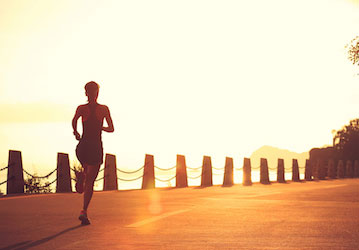The best time of day to exercise is the time when you can maintain a consistent exercise routine—not necessarily the same time for everyone. You also might experience better training adaptations when you exercise consistently at a regular time. For example, if you work out at noon every day, your body will adapt to perform at its best at noon.
Above all, exercise should be enjoyable. After all, if you don’t enjoy it, you’re less likely to keep up with it. So here are a few things to keep in mind about making exercise fit into your schedule.
Morning. It might be easiest to maintain a consistent exercise regimen by starting your day with a workout. Other things that come up during the day can affect your plans to work out later in the day, and motivation often fades as the day progresses. However, since your body and muscle temperatures are lower in the morning, it’s especially important in the morning to warm up properly before exercise.
Afternoon. Optimal adaptations to weight training seem to occur in late afternoon. Levels of hormones such as testosterone (important for muscle growth in men and women) and cortisol (important for regulating metabolism and controlling blood pressure) seem to be at optimal ratio later in the day. For some people—because hormone levels vary from person to person—lifting later also might be more beneficial because their testosterone can respond better to resistance exercises.
Evening. The biggest caveat about exercising in the evening is how it will affect your sleep. Everyone is a little different. Some people can exercise right before bed and have no trouble sleeping. For others, it can make it difficult to get a good night’s sleep. There are lots of factors that can affect your sleep. Experiment to see what works for you.
Remember that other factors such as your work schedule, fitness goals, current diet, and sleep habits also affect your workout routine and physical performance. But whether at the end of the day (or in the morning or afternoon), a consistent exercise routine is the best routine.
